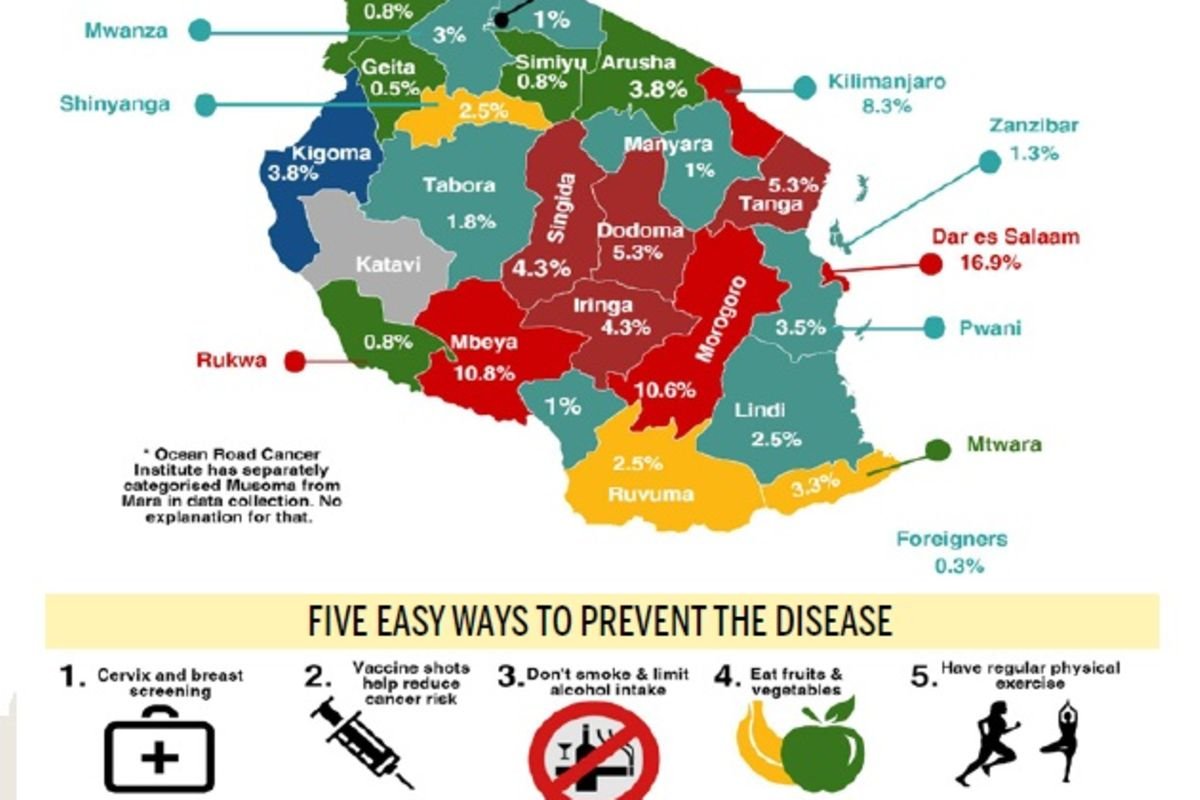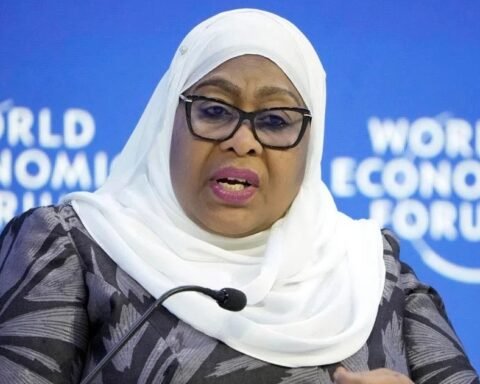Tanzania is witnessing a steady rise in cancer cases, with 16,516 new diagnoses reported between 2019 and 2023, according to the latest Ministry of Health report.
The increase is partly attributed to lifestyle changes that heighten the risk of non-communicable diseases, highlighting the need for urgent public health interventions.
The “Tanzania Cancer Registry Report 2019–2023” draws on data from five Population-Based Cancer Registries in Dodoma, Kilimanjaro, Dar es Salaam, Mbeya, and Mwanza. The report shows that prostate cancer remains the most common cancer among men, while cervical cancer leads among women, underscoring the growing burden on the nation’s healthcare system.
Regional disparities are evident. Kilimanjaro recorded the highest number of cases with 6,161, accounting for 37.3% of all reported cases. Dar es Salaam followed with 3,521 cases (21.3%), Dodoma with 2,999 cases (18.2%), Mwanza with 2,220 cases (13.4%), and Mbeya with 1,615 cases (9.8%). Kilimanjaro’s high figures are believed to reflect strong local investment and partnerships in cancer services, which have improved detection and reporting.
Also Read; Farmers at the Heart of East Africa’s Green Transition
Medical officials note that while Kilimanjaro appears to have more cases, this does not necessarily mean the risk is higher there. “Our investments in diagnostic facilities and community outreach have increased case detection, which may explain why the numbers are higher here,” said Kilimanjaro Regional Medical Officer Dr. Jairy Khanga.
Experts warn that the rising trend reflects global patterns where urbanization, lifestyle changes, and longer life expectancy contribute to higher cancer incidence. In Tanzania, the findings stress the importance of promoting early detection, expanding treatment access, and targeting high-risk populations to reduce preventable deaths.
The report also highlights the need for strengthened healthcare systems, especially in rural areas where late-stage diagnosis remains common due to limited access to screening and specialized treatment. Strengthening regional cancer registries and improving public awareness about lifestyle risk factors are essential steps to tackle the growing disease burden.







